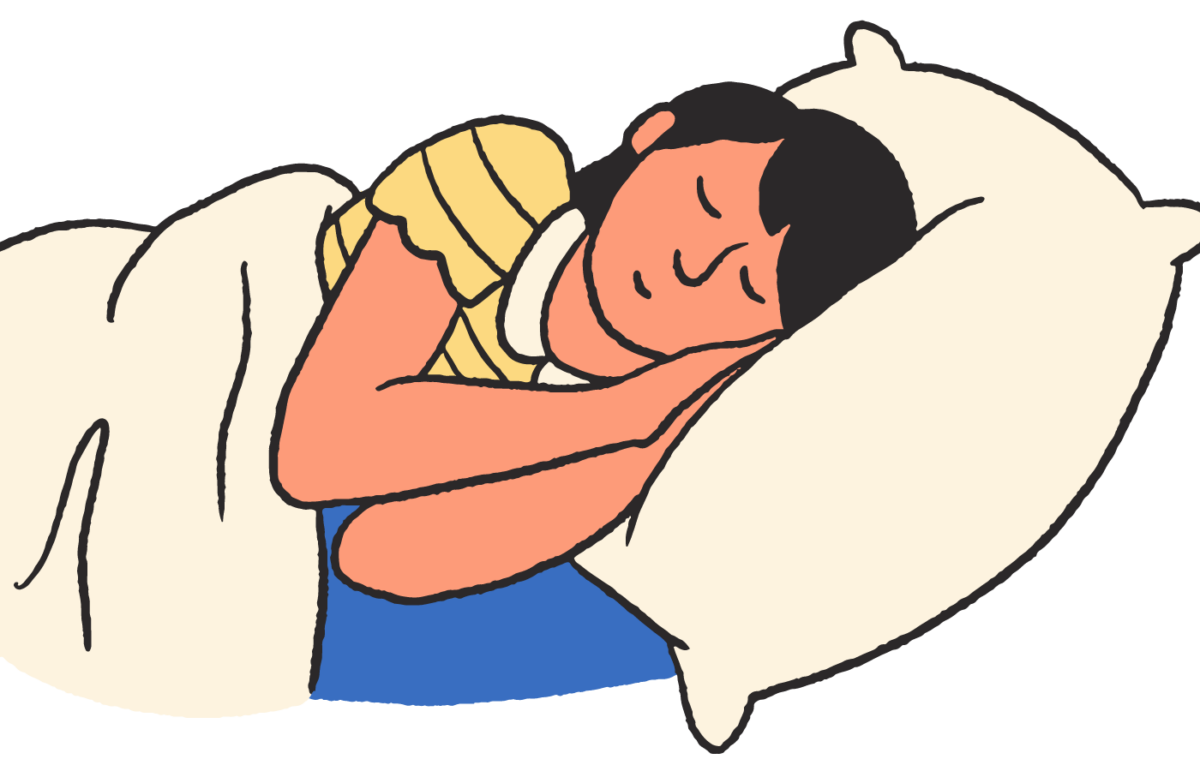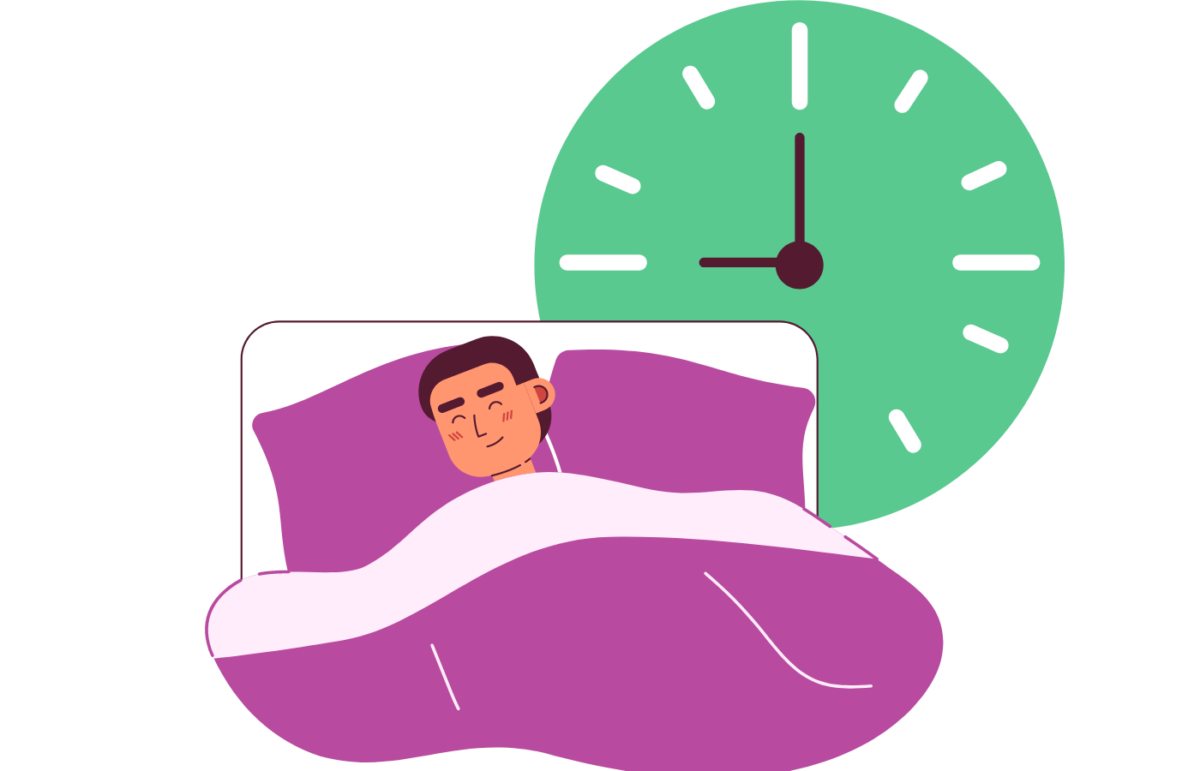How to improve sleep quality naturally
 Written by
Megha Kadam
Written by
Megha Kadam 
Megha Kadam
Megha Kadam is a freelance content writer who loves reading and writing on mental health,...
Click here to know more

Asma Ansari
Asma is a psychotherapist, and Co-Founder at Reflective Conversations. She is also associated...
Click here to know more
‘When you go to sleep,’ ‘How long you sleep,’ and ‘How well you sleep’ decide the quality of your slumber. Good quality sleep is essential for the body’s metabolism, memory storage, brain recovery, and learning. If you don’t have a regular sack time schedule, you might suffer from common sleep disorders such as:
- Insomnia – where you find it difficult to sleep despite having time.
- Sleep apnea – where your breathing is disrupted while sleeping.
- Narcolepsy – where you feel tired during the day despite sleeping for 7 to 8 hours
That’s why a good snooze is vital for overall health. In this article, we will understand the sleep cycle and how to improve sleep quality naturally with insights from Disha Manchekar, a psychologist and trauma therapist, and the founder of Innate Mind. Because India has a sleep problem.
Sleep cycles and the circadian rhythm
Firstly, let’s understand sleep cycles.
There are 2 types of sleep – REM and non-REM sleep. REM sleep occurs for 90 minutes where your eye movements are rapid and breathing is faster and irregular.
Non-REM sleep has 3 stages.
Stage 1 – You sleep light. Your heartbeats, breathing, eye movements are slow, and muscles are relaxed with only slight movements.
Stage 2 – You are about to experience deep sleep. Your heartbeats and breathing are slow compared to stage 1, and your muscles are further relaxed. Your body temperature drops and eye movements are still.
Stage 3 – You sleep for a longer period during the first half of the night. Your heartbeat and breathing levels are very low. Muscles are relaxed completely, and sleep isn’t easily disrupted.
Circadian rhythm and sleep regulation
Circadian rhythm is the 24-hour internal clock in your brain that regulates cycles of alertness and sleepiness by responding to light changes in your environment. Thus, proper sleep allows your body to engage in a circadian rhythm, which helps in memory consolidation, body healing, and metabolic regulation, whereas, improper rest may cause depression, bipolar disorders, and seasonal affective disorder.
6 ways to improve your sleep quality naturally
If you desire to sleep long and deep, follow these simple yet effective tips.
#1 Create a sleep-inducing environment
Avoid tossing and turning through the night by optimizing your bedroom for a better and enriching siesta.

Tips for optimizing your bedroom for better sleep quality
- Choose the right mattress and pillows – Choose mattresses and pillows that keep your spine intact as per your sleeping position. You can also opt for biometric technology-based mattresses to record your:
- heart rate
- breathing
- snoring
- movement while snoozing
You can also customize your bed’s firmness per your sleeping position to help with environmental monitoring, such as sound and temperature.
- Control temperature, light, and noise – A healthy person experiences a drop in body temperature while asleep. Thus, experts recommend an ideal room temperature should be 18 to 21 degrees Celsius.
Using white noise machines to mask unwanted outside noise can help you enjoy your slumber.
Light plays a significant role in your sleep environment. A dark room is considered the best to catch your Zs. However, you can use a red light if you are uncomfortable sleeping in a dark room.
A study on the effect of red light on sleep quality was conducted on Chinese female basketball players for 14 days, and showed improved sleep quality among the participants.
- Keep your electronic devices away – Artificial illumination from electronic devices can mess up your sleep cycle by slowing down melatonin production. Reduced melatonin thus activates your brain and keeps you awake till midnight.
In this case, set a digital curfew on your devices and avoid bringing them into your bedroom. Also, use printed books or Kindle paperwhite if you love reading before hitting the sack.
#2 Diet and sleep quality
Before dozing off, do you crave pizza, burgers, pastries, or cold beverages? These foods can hamper digestion and keep you awake, causing sleep disturbances. Consider food that promotes your slumber and also helps with reducing sleep issues. Ensure you have a light dinner before sunset or 1-hour post-sunset to help you sleep quicker.
Sleep-promoting foods and beverages
1. Magnesium– Magnesium reduces the stress hormone cortisol and promotes the sleep hormone melatonin. Also, it relaxes muscles and has a calming effect on the body.
Sources – green leafy vegetables, almonds, cashews.
2. Glycine– Glycine helps lower your body temperature and thus makes you sleep faster.
Sources – lentils, chickpeas, sunflower seeds, A2 milk.
3. Inositol – Inositol impacts circadian rhythm and may help regulate sleep. It also reduces anxiety and sleep disturbances.
Sources – peanuts, almonds, orange, kidney beans
#3 Lifestyle adjustments
Binge-watching Netflix or pulling an all-nighter can cause sleep issues, showing you need to make some lifestyle adjustments.
Regular exercise – Regular exercise helps you fall asleep faster and also enjoy deep sleep without any interruptions. But ensure you don’t exercise at bedtime as it can delay your rest.
Stress management – Stress can make you wake up on the wrong side of the bed.
Disha says, “I recommend doing meditation such as body scan and deep breathing like the 4-7-8 breathing technique before going to sleep. One must also follow a good sleep routine that includes managing stress. For instance, not drinking coffee or smoking, not watching triggering content, not responding to stressful emails/ messages, and writing down stressful thoughts close to sleep time.
Avoid forty winks – A nap is okay if you’re mentally or physically exhausted. But prolonged or frequent cat naps can hamper your sleep quality, especially if you have insomnia.
#4 Natural sleep aids and remedies

Most people prefer natural alternatives to avoid medication and its side effects. Here are some natural sleep disorder remedies to help you sleep well.
Herbal supplements – Herbal supplements such as chamomile, ashwagandha, and Brahmi can help calm and relax your mind and give you sound and good sleep.
Aromatherapy and essential oils – Essential oils‘ aroma helps you relax, trains your body to unwind, and prepares you for a deep sleep. Oils such as lavender, Roman chamomile, cedarwood, ylang ylang are helpful.
Use of natural light – To snooze on time and regulate your sleep patterns, expose yourself to natural sunlight daily. It helps advance the timing of slumber to earlier hours and improve your sleep quality.
#5 Establishing a sleep-conducive routine
Suppressing sleep may make you suffer from heavy eyes, headache, yawning, and low energy. If done consistently, it can lead to chronic sleep deprivation. Thus, it becomes vital to have a proper sleep routine.
How to develop a pre-sleep routine
Here are some simple suggestions from Ayurveda to help improve your sleeping quality naturally.
1. Netra Sparsh – Before turning in for the night, sprinkle some cold water on your eyes to help them relax and make you sleep better.
2. Pada Prakshalana – Wash your feet before hitting the sack to relax your eyes and promote sleep.
3. Padabhyanga – Gently massage your feet for good sleep, as it helps reduce stress and anxiety.
4. Mano Vivrithi – A practice in Ayurveda to help lighten your heart when you write down something positive that happened during the day.
5. Gentle stretching – Do a Gentle stretching exercise to help your muscles function well the next day.
6. Sleep position – Lie on your left side for sound slumber as it aids in digestion, and good digestion aids in a better sleep experience.
Techniques for quieting the mind before bed
Here are a few ayurvedic tips to calm your mind before winding up your day.
- Meditate for a short while – A short meditation will help calm your mind and nervous system, process your day’s stress, and relieve unnecessary tension.
- Chanting – Chanting helps you quiet your mind. Chant affirmations such as, “I inhale peace, I exhale stress” for a few minutes and see the magic.
- Go for a short walk – Fresh air and body movement can immensely help your body to get into the sleep mode and also help digest your food.
#6 Addressing sleep disorders naturally
If you feel extremely tired, exhausted, depressed, irritated, or unable to focus on work throughout the day, these might be the underlying symptoms of sleep disorders such as insomnia or sleep apnea.
In such a case, exercise regularly, follow sleep hygiene, get proper nutrition, and try to relax. And, if need be, seek additional help from a therapist.
As Disha says, “Self-help techniques are helpful to a great extent. But, if someone has tried their best yet is having sleepless nights because of constant thoughts, overwhelming emotions, and aches in the body, then they must consider consulting a therapist for further help”.
Help support mental health
Every mind matters. Every donation makes a difference. Together, we can break down stigmas and create a more compassionate world.
Disclaimer: MyndStories is not a non-profit. We are a private limited company registered as Metta Media Pvt Ltd. We don't fall under Section 80G and hence you don't get a tax exemption for your contribution.
